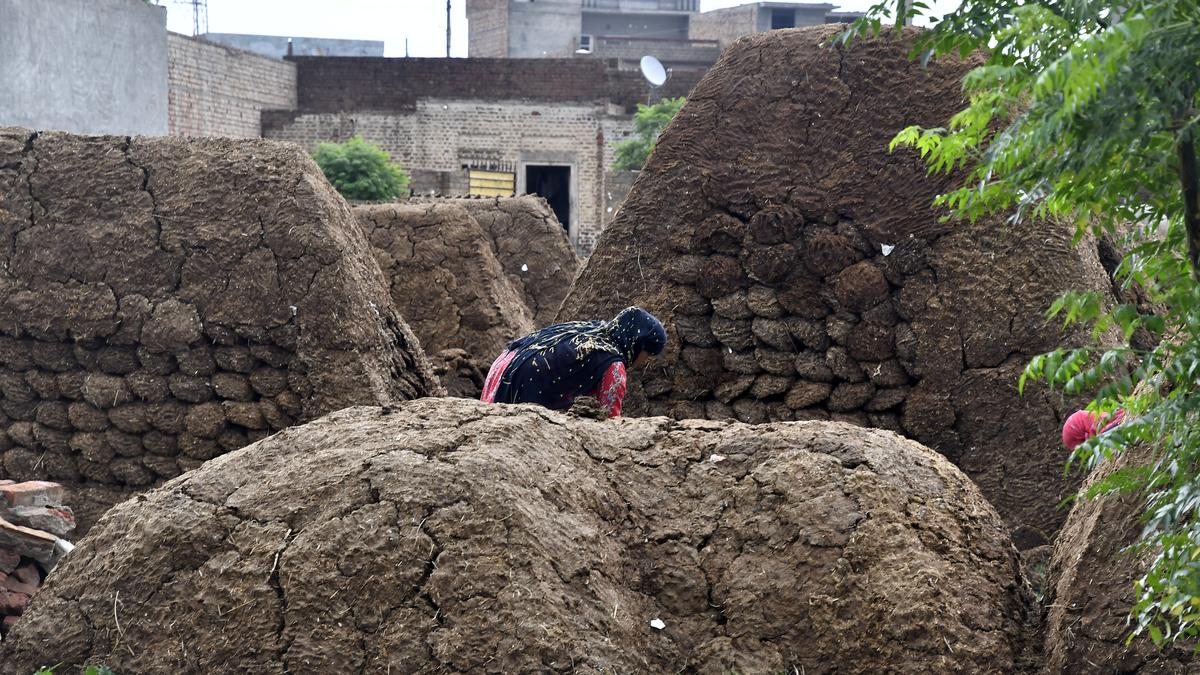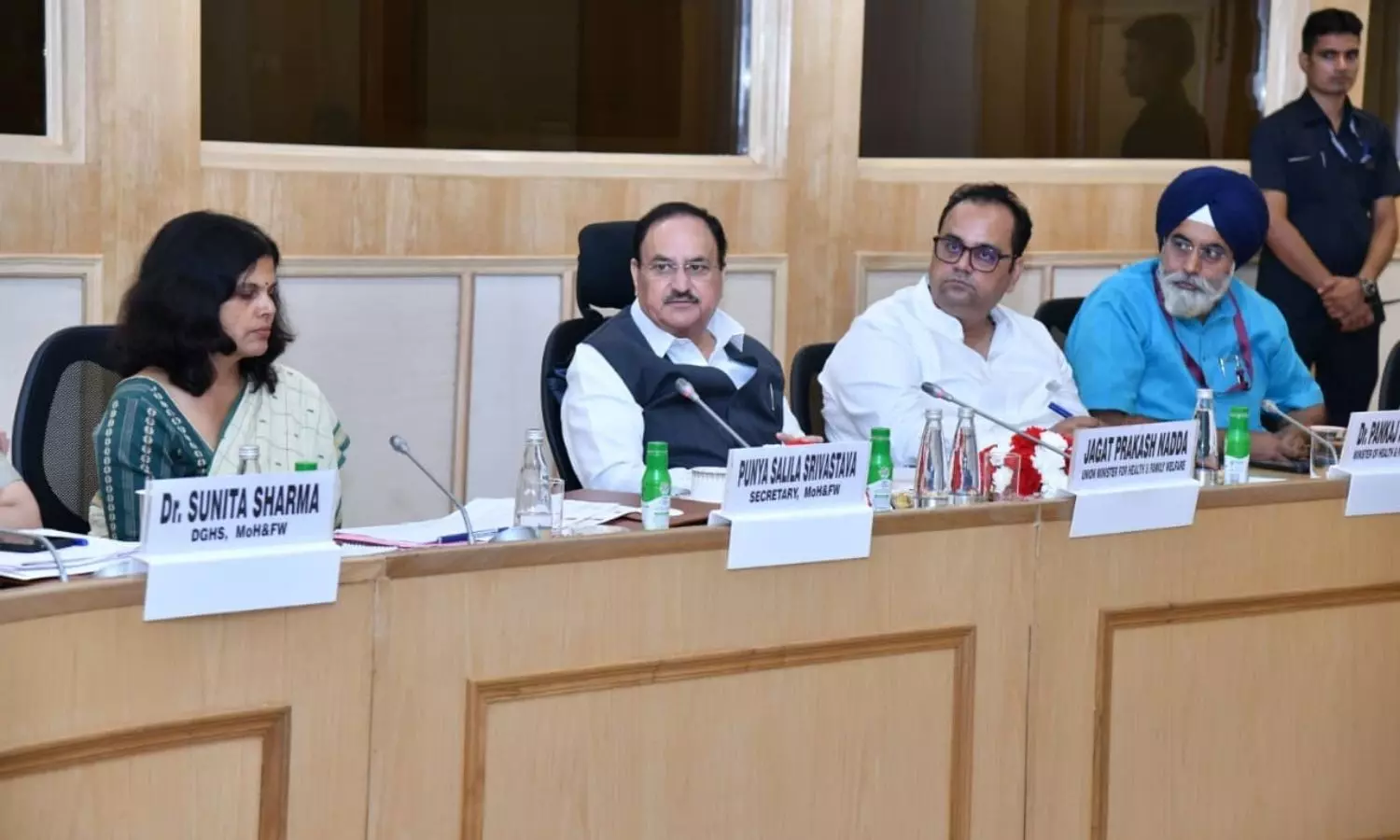By Avinash Nair
Copyright thehindubusinessline

Villages across India may soon see a decline in rotting cow dung heaps, thanks to a new initiative by the National Dairy Development Board (NDDB). The NDDB is setting up 15 compressed biogas (CBG) plants at a cost of ₹750 crore in six states — Gujarat, Goa, Maharashtra, Rajasthan, Odisha and Bihar — to convert cow dung into clean energy.
As part of this program, farmers will be paid up to ₹1 per kilogram of cow dung supplied to these plants which once ready will require more than 1,500 tonne of cow dung daily. The move aims to tackle rural sanitation issues, reduce foul odours caused by unmanaged dung heaps and offer an additional income stream to livestock owners. The initiative not only supports clean energy production but also promotes sustainable rural development, marking a significant step towards transforming waste into wealth.
“An estimated 300-400 tonne of cow-dung is already being procured from farmers. They are being paid upto ₹1 for every kilogram of cow dung purchased for the existing CBG plants. We are now setting up 15 more plants which are in various stages of construction. Each of these plants will have 100 tonne per day (TPD) capacity (of cow dung as input feed) and each will cost about ₹50 crore,” Meneesh Shah, chairman, NDDB told businessline.
Banas Dairy — part of cooperative milk unions under Gujarat Cooperative Milk Marketing Federation (GCMMF) in Gujarat — was the first to set up a CBG plant in Dama in Banaskantha district which converts cowdung and potato waste to Bio-CNG, a renewable fuel. Thereafter NDDB, Suzuki R&D Center India Pvt Ltd (SRDI), an Indian subsidiary of Suzuki Motor Corporation (SMC) and Banas Dairy entered into a tripartite agreement to setup four dung-based biogas plants for generating Compressed Biomethane Gas in Banaskantha district. These plants are in various stages of construction.
NDDB has also set up a 100-tonne CBG plant in Varanasi in Uttar Pradesh. Like milk, cow dung is presently being collected from door-step of farmers in Banaskantha in Gujarat and Varanasi in Uttar Pradesh every morning. The dung collected is supplied to the existing plant which can produce about 4000-5000 cubic meter per day of biogas.
“Most of these new plants are CBG plants where biogas produced will be purified to about 95 per cent methane-level and then compressed and sold as Bio CNG for vehicle mobility. A couple of them are plants where biogas produced will be used for thermal applications. In such plants compression is not required,” Shah added. Apart from Banas Dairy, NDDB has signed agreements for setting up eight such CBG plants with Amul Dairy, Dudhsagar Dairy, Baroda Dairy and Sabar Dairy in Gujarat. It has also tied up with smaller milk cooperative unions in the State, including the ones at Valsad, Panchmahal, Amreli and Surendranagar for 100 tonne CBG plants.
Outside Gujarat, NDDB has signed agreements with Goa State Cooperative Milk Producers’ Union, Mahananda Dairy (Maharashtra), Rajasthan Cooperative Dairy Federation, Odisha State Cooperative Milk Producers’ Federation and Barauni Dairy (Bihar). Biogas produced at Bihar and Odisha plants will be used for thermal applications. “We are working on the finance mechanism for these projects. While NDDB has earmarked some funding and we are working with NABARD for green financing,” Shah added.
Having found that CBG produced from cattle dung is better for longevity and performance of vehicles, a subsidiary of Japan’s automobile manufacturer Suzuki Motor Corporation has already acquired a 26 per cent stake in NDDB Mirda Ltd, a bio-gas venture of NDDB.
Earlier this year, a Bengaluru-based NGO, Sustain Plus and NDDB, joined forces to roll out a large-scale circular dairy programme that will install 10,000 biogas plants across 15 states in India, including Uttar Pradesh, Gujarat, Madhya Pradesh and Bihar. Under this project, in the next four years, 10,000 biogas digesters, installed across multiple states, are expected to generate 3 lakh tonne of organic slurry annually, improving soil health and reducing the need for chemical fertilisers.
They will also produce more than 7 million cubic meters of biogas every year, providing clean cooking fuel to 10,000 rural households. In addition, the program will enable the production of nearly 60,000 tonne of Phosphate Rich Organic Manure (PROM) each year, replacing an equivalent quantity of chemical phosphate fertilisers, further supporting affordable and sustainable farming practices.
Published on September 16, 2025



